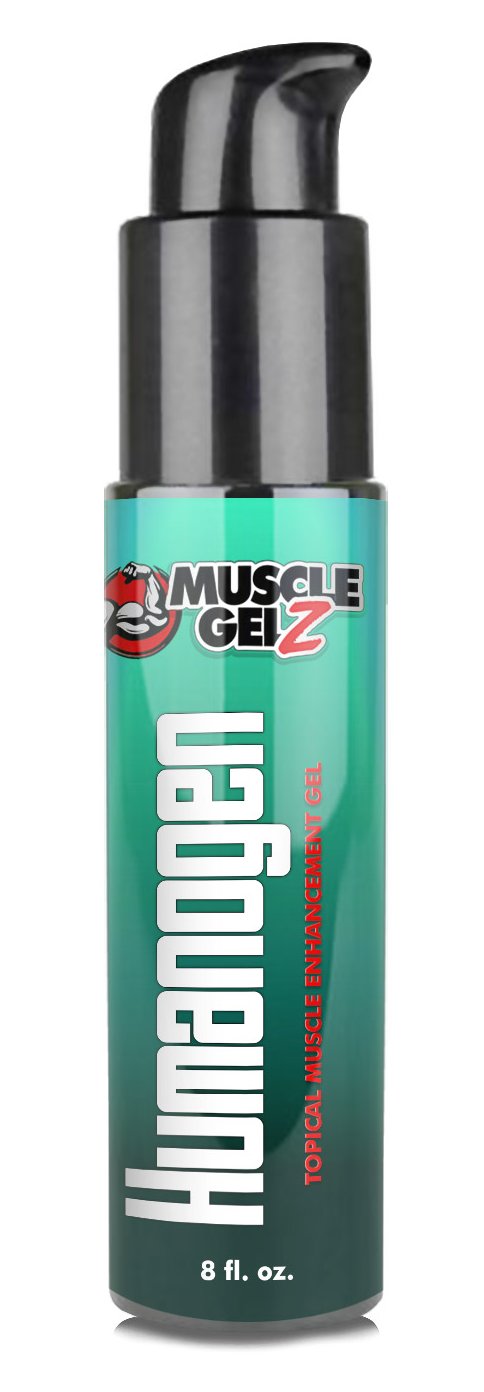A Guide to Artificial Sweeteners
Sugar is, perhaps, one of the most divisive consumables in our marketplace. Everyone knows that too much sugar is a bad thing and can lead to insulin issues, dramatic sugar highs and lows, weight gain, and an overall unhealthy lifestyle. Of course, sugar is also found aplenty in fruit and anything typically high in carbohydrates, so we also have use and need for it, too. Critics have gone so far as to say it is more addictive than cocaine, though outside research has suggested that isn’t entirely accurate. In any case, for the less active of us in the workplace or in leisure, artificial sweeteners have become a mainstay in our choice of beverages. In particular, sucralose and aspartame, the two most notorious artificial sweeteners in the business (we’re leaving out Stevia, as the FDA won’t name it an artificial sweetener*), run the diet and sugar free empires with iron fists. If we’re not taking in sugar or amassing calories, foods and drink sweetened with artificial sweeteners have to be a good thing, right? Some extra research into these miracle ingredients may surprise you, however, as there are many outlooks that suggest sucralose and aspartame could potentially cause different issues to arise.
If there is one apparent and well documented positive to consuming artificial sweeteners, it’s that sugar intake is, indubitably, limited or nonexistent. The benefits will be reaped for your teeth and high blood sugar, as sugar is sure to damage teeth and raise blood sugar levels. The latter is known to cause or compound issues with diabetes, among other problems that can occur from overuse. The most common consequence resulting from the high intake of sugar is weight gain. Since approximately 17% of caloric intake from adults is from added sugar, obesity is an obvious result. According to Healthline, experts suggest keeping added sugars at or below 10% of your caloric intake. Additionally, too much sugar can increase your risk of heart disease, cellular aging, cancer, and kidney disease - all of which are pretty serious ailments. Acne and a loss of energy can also occur when consuming too much sugar.
With all of these negative outcomes believed to be linked to consuming too much sugar, it’s easy to see why researchers sought artificial means of sweetening foods and beverages. For years, the rumors have swirled around aspartame and sucralose, claiming they cause cancer. Indeed, my mother’s doctor warned her of the risks he believed were inherent with artificial sweeteners, suggesting she consume normal sugar over the alternative. Still, the FDA have continuously researched aspartame and sucralose more than just about any other consumable and have consistently claimed to find little evidence regarding the artificial sweetener and cancer link. Even the American Cancer Society states that Aspartame, in particular, has never been consistently linked to health issues (outside, of course, for the risks posed to people who suffer from phenylketonuria).
New research, however, suggests that maybe artificial sweeteners can cause other health issues much less considered. Recent research has looked into whether consuming artificial sweeteners can increase blood sugar or insulin resistance, both becoming counterproductive for diabetics and a risk for non-diabetics. Since there isn’t long term research on the effect of artificial sweeteners on humans - let alone animals - in this particular area, conclusive evidence does not exist. In 2014, Israeli researchers discovered that sucralose seemed to change gut bacteria in lab rats, which effectively increased their blood sugar levels (the scientists were able to reverse the effect by replacing that bacteria). Since this line of query has yet to see human testing, these effects cannot be confirmed in the long term.
There has, however, been more research completed on whether artificial sweeteners increase insulin resistance. Researchers from the Washington University School of Medicine in St. Louis found that, when consumed in larger quantities by obese individuals, non-nutritive artificial sweeteners can increase insulin resistance. Sine obese people consuming food and drink with artificial sweeteners are typically doing so to live a healthier lifestyle, increased insulin resistance can be a particularly bad thing, especially in diabetics. The resulting hyperglycemia is not a pleasant result, but insulin resistance can be reversed. The same study also found differing results in slimmer individuals, suggesting that non-nutritive artificial sweeteners may be detrimental to the obese.
In the grand scheme of the sugar vs. artificial sweetener battle, there is no clear victor when it comes to general health benefits. An overabundance of either substance can be linked to a number of health issues that are relative to each other. In the case of sucralose, insulin resistance was shown to occur, at least in the Washington University study, in an obese set of test subjects. Both aspartame and sucralose have been tested well over 100 times each by the FDA and found to be safe with what limited outside research we have offering varying opinions. Since most research has yet to test the long term effects of artificial sweeteners, the final verdict is still out. If a sweetened drink is what you’re craving, there are more natural substances (like stevia, for example), though those, too, carry little research in regards to health. We can, however, safely recommend that replacing soda or sugar/artificially sweetened beverages with water is a much healthier alternative.
Sugar is, perhaps, one of the most divisive consumables in our marketplace. Everyone knows that too much sugar is a bad thing and can lead to insulin issues, dramatic sugar highs and lows, weight gain, and an overall unhealthy lifestyle. Of course, sugar is also found aplenty in fruit and anything typically high in carbohydrates, so we also have use and need for it, too. Critics have gone so far as to say it is more addictive than cocaine, though outside research has suggested that isn’t entirely accurate. In any case, for the less active of us in the workplace or in leisure, artificial sweeteners have become a mainstay in our choice of beverages. In particular, sucralose and aspartame, the two most notorious artificial sweeteners in the business (we’re leaving out Stevia, as the FDA won’t name it an artificial sweetener*), run the diet and sugar free empires with iron fists. If we’re not taking in sugar or amassing calories, foods and drink sweetened with artificial sweeteners have to be a good thing, right? Some extra research into these miracle ingredients may surprise you, however, as there are many outlooks that suggest sucralose and aspartame could potentially cause different issues to arise.
If there is one apparent and well documented positive to consuming artificial sweeteners, it’s that sugar intake is, indubitably, limited or nonexistent. The benefits will be reaped for your teeth and high blood sugar, as sugar is sure to damage teeth and raise blood sugar levels. The latter is known to cause or compound issues with diabetes, among other problems that can occur from overuse. The most common consequence resulting from the high intake of sugar is weight gain. Since approximately 17% of caloric intake from adults is from added sugar, obesity is an obvious result. According to Healthline, experts suggest keeping added sugars at or below 10% of your caloric intake. Additionally, too much sugar can increase your risk of heart disease, cellular aging, cancer, and kidney disease - all of which are pretty serious ailments. Acne and a loss of energy can also occur when consuming too much sugar.
With all of these negative outcomes believed to be linked to consuming too much sugar, it’s easy to see why researchers sought artificial means of sweetening foods and beverages. For years, the rumors have swirled around aspartame and sucralose, claiming they cause cancer. Indeed, my mother’s doctor warned her of the risks he believed were inherent with artificial sweeteners, suggesting she consume normal sugar over the alternative. Still, the FDA have continuously researched aspartame and sucralose more than just about any other consumable and have consistently claimed to find little evidence regarding the artificial sweetener and cancer link. Even the American Cancer Society states that Aspartame, in particular, has never been consistently linked to health issues (outside, of course, for the risks posed to people who suffer from phenylketonuria).
New research, however, suggests that maybe artificial sweeteners can cause other health issues much less considered. Recent research has looked into whether consuming artificial sweeteners can increase blood sugar or insulin resistance, both becoming counterproductive for diabetics and a risk for non-diabetics. Since there isn’t long term research on the effect of artificial sweeteners on humans - let alone animals - in this particular area, conclusive evidence does not exist. In 2014, Israeli researchers discovered that sucralose seemed to change gut bacteria in lab rats, which effectively increased their blood sugar levels (the scientists were able to reverse the effect by replacing that bacteria). Since this line of query has yet to see human testing, these effects cannot be confirmed in the long term.
There has, however, been more research completed on whether artificial sweeteners increase insulin resistance. Researchers from the Washington University School of Medicine in St. Louis found that, when consumed in larger quantities by obese individuals, non-nutritive artificial sweeteners can increase insulin resistance. Sine obese people consuming food and drink with artificial sweeteners are typically doing so to live a healthier lifestyle, increased insulin resistance can be a particularly bad thing, especially in diabetics. The resulting hyperglycemia is not a pleasant result, but insulin resistance can be reversed. The same study also found differing results in slimmer individuals, suggesting that non-nutritive artificial sweeteners may be detrimental to the obese.
In the grand scheme of the sugar vs. artificial sweetener battle, there is no clear victor when it comes to general health benefits. An overabundance of either substance can be linked to a number of health issues that are relative to each other. In the case of sucralose, insulin resistance was shown to occur, at least in the Washington University study, in an obese set of test subjects. Both aspartame and sucralose have been tested well over 100 times each by the FDA and found to be safe with what limited outside research we have offering varying opinions. Since most research has yet to test the long term effects of artificial sweeteners, the final verdict is still out. If a sweetened drink is what you’re craving, there are more natural substances (like stevia, for example), though those, too, carry little research in regards to health. We can, however, safely recommend that replacing soda or sugar/artificially sweetened beverages with water is a much healthier alternative.




